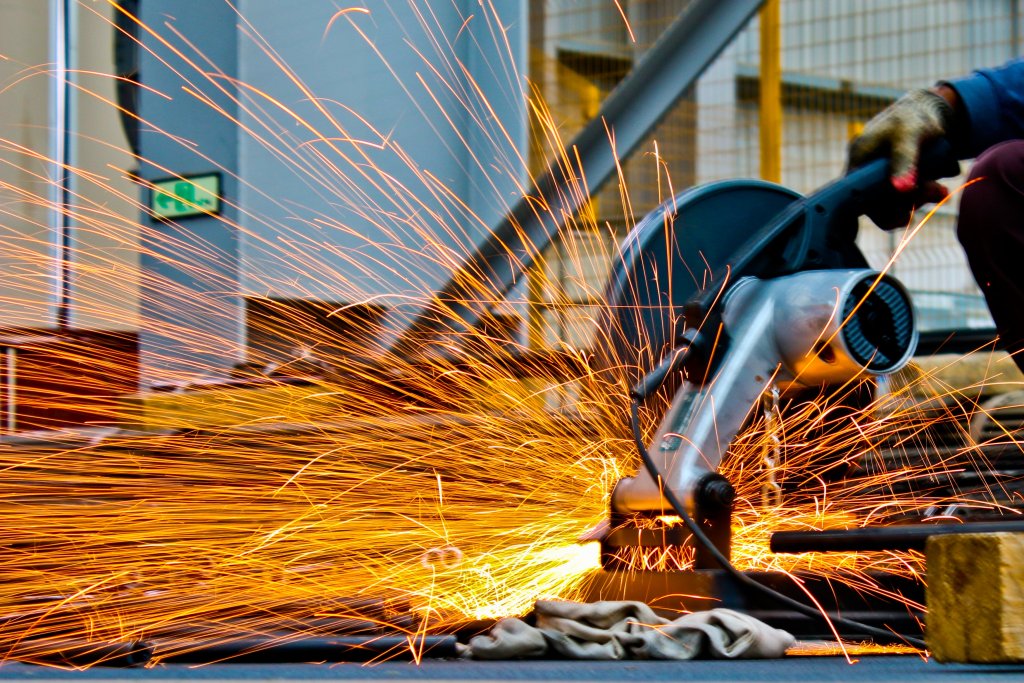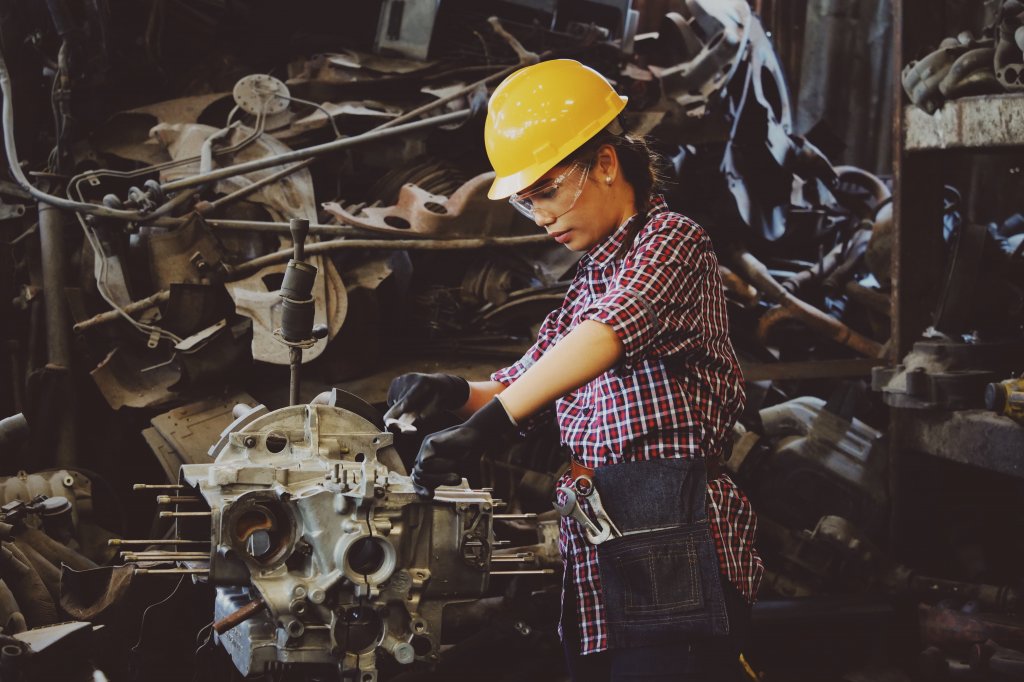Machine operators are the experts qualified to operate, service, and maintain heavy machinery.
The job description of the machine operator implies that they should be knowledgeable about all the features of the machine and be trained to use it.
Machines they work with can be heavily mechanical equipment or computer-controlled.
The industry in which a machine operator works determines the type of machinery they operate.
Their responsibilities will also vary according to their employment.
In this article, you will find comprehensive information about the responsibilities, qualifications, and skills, working conditions, and hours of a machine operator position.
Article Table of Contents
Responsibilities of a Machine Operator
Machine operators are responsible for maintaining the machines, keeping a range of all the necessary materials for machine operation.
They also have to ensure that the machine is operating at its full capacity.
A machine operator ensures uninterrupted work of the machine in the course of the production process as well.
The job of a machine operator can also include quality control of the products manufactured with the machine.
They usually work in a team which ensures a smooth course of manufacture.
The Duties of a Machine Operator
- Read and follow job orders.
- Determine the required materials and products.
- Prepare and set up machines for production – clean, calibrate, etc.
- Insert the components and raw materials into the machine.
- Carry out machine operation tests.
- Control and run the machine to the fullest extent.
- Being able to maintain the machine and troubleshoot arising issues.
- Inspect the machine outputs for quality control using precision tools.
- Provide detailed reports and logs on the work done.
- Keep up with safety requirements and maintain the safe work setting at all times.
Fundamental Skills of a Machine Operator
Mathematical skills:
Mathematical justification and good computer skills are essential.
Analytical skills:
The operators should be able to read, understand, and analyze blueprints and schemes.
Extensive analytical skills are essential for understanding the machine performance issues if it operates not as expected.
Problem-solving skills:
Ability to quickly identify and eliminate the flaws and errors in the operation.
Attention to details:
The manufactured products have an extremely low admissible error level, so precise operation is vital.
The operators should be expressly detail-oriented.
Technical and mechanical skills:
Machine operators should possess the drafting, machine operation, CAM/CAD computer-related skills.
Practical knowledge of measurement devices and tools such as micrometers is also crucial.
Physical fitness:
Machine operators should be physically fit since long operational hours can be required.
Ability to work in a team:
Machine operators should be comfortable working in a team.
Usually, a team of workers is involved in the production to make sure the process is smooth and the quality of products is top-notch.
How to Become a Machine Operator
Machine operators should be certified to operate the machinery.
They should also have appropriate training which they can acquire through the accredited program or apprenticeship.
Prospective machine operators can enroll in one of the approved programs offered at vocational schools, technical and community colleges.
The theoretical training should go along with the on-the-job training almost at all times.
Even after taking the courses and receiving practical experience, machine operators will need to gain years of experience to become experts.
CDL license is usually required in the majority of states for the operation of heavy machinery.
In some states, a specialty license can be required.
Training and Qualifications
- High school diploma or equivalent/GED (most of the time, it’s the minimum education requirement).
- Experience and training for 2 years or more (to be considered a professional operator).
- Training in safety techniques and requirements.
- Training with specific machinery.
- Practical (on-the-job) training (required most of the times).
- Certification to operate specific machinery (mostly optional).
- Knowledge of various types of machinery operation.
- Trained to handle measurement devices and tools.
- Specialty or CDL license (for heavy machinery operation).
Working Experience
If the employer agrees to train the candidate on the job, getting hired as a machine operator without previous experience is possible.
If you are looking into being hired as a professional machine operator, you should have a minimum of two years of experience and practical training.
However, mostly in the job descriptions of machine operators, 4 to 5 years of training and experience are required.
It is the number of years for a candidate to be considered a fully trained expert.
At some companies, formal education isn’t necessary, but a high school diploma or GED is the common requirement.
You can get accredited in operation of a specific machine (for example, forklift operator) to obtain a job depending on the industry.
You can also obtain a certificate or an associate’s degree, but it is not obligatory.
No matter which degree or certifications you earned, you still need practical training or apprenticeship to get the machine operator job.
Work Hours
The work of a machine operator implies flexible hours depending on the specific job description.
While in training, machine operators can be expected to work long hours including first and second shifts.
Job Overview and Prospects
Machine operators are always in demand.
However, it’s not expected for the field to grow much in the near future.
Automation in manufacturing makes some jobs unnecessary.
Machine operators skilled in a variety of areas can be hired in the shops which usually demand a wide range of skills.
So it’s wise to expand your skill set and get qualifications in broader fields, so you are not specialized only in one particular machinery.
Conclusion
Machine operators should be detail-oriented hands-on employees with good mathematical and analytical skills.
They should be apt in mechanics and be able to handle all kinds of tools.
They should be highly ethical about their job, as machine operators work flexible hours with minimum supervision.
If you look into becoming a machine operator, you should be prepared to spare multiple years for the training on machines.
Machine operators should expand their skills and learn how to operate various types of machinery to achieve flexibility in their job.

